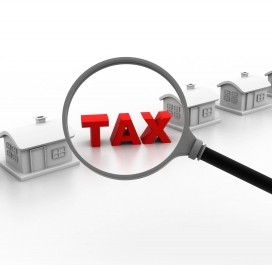For most taxpayers, reducing their annual tax burden is a major financial goal. According to the Internal Revenue Service, millions of Americans claim deductions on their taxes every year. Some examples of popular deductions include real estate taxes, home mortgage interest, charitable gifts, and local taxes. However, many taxpayers overlook a number of tax write-offs that could make a significant impact on their tax burden. Where applicable, consider applying the following tax deductions to your return this year.
Medical and Dental Care

Social Security Taxes
If you are self-employed, there are several tax credits, write-offs, and deductions you can apply to your tax burden. However, many self-employed people are not aware they can write off half the 15.3 percent tax they have to pay toward Social Security and Medicare. The deduction is conveniently listed on IRS Form 1040.
Job-Hunting Expenses
If you were unemployed in the previous tax year, the costs you incurred while looking for a job is deductible. These expenses are deductible even if you didn’t find a new job. Transportation expenses, resume printing costs, and fees from employment agencies are examples of items you can write-off. However, if you are looking for your first job, you cannot deduct these expenses on your taxes.
Eco-Friendly Home Improvements
In previous years, it was possible to get a tax credit for making energy-saving improvements to your home’s infrastructure, such as adding insulation to the roof. These specific tax credits are no longer available, however, there are still lucrative credits for homeowners who decide to install qualified alternative energy equipment. For example, a solar hot water heater is an acceptable alternative to a regular water heater. Depending on the equipment you decide to buy, you can receive up to a 30 percent credit of the overall cost to purchase, set up and install a qualified machine.
Performing some due diligence before filing your taxes can reveal a plethora of tax credits and deductions you can apply to your current situation. However, if you need help writing off an item or are dealing with tax debt, Wiesner & Frackowaik, LC law firm suggest hiring a tax attorney who has the experience to help you in these areas.
Image Credits: Image courtesy of BlueBay at FreeDigitalPhotos.net

